34 Insightful Quotes By Emmeline Pankhurst For Those Who Believe In Meliorism

My parents, especially my father, discussed the question of my brothers' education as a matter of real importance. My education and that of my sister were scarcely discussed at all.
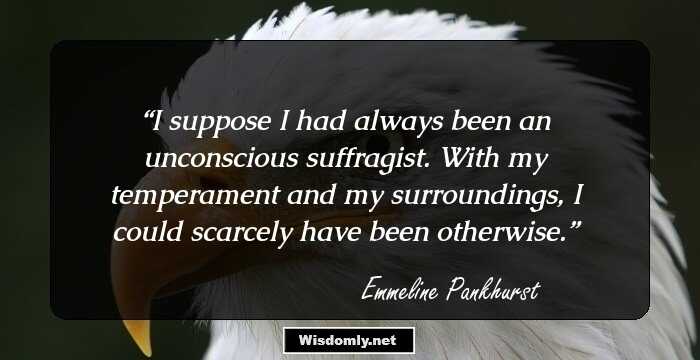
I suppose I had always been an unconscious suffragist. With my temperament and my surroundings, I could scarcely have been otherwise.
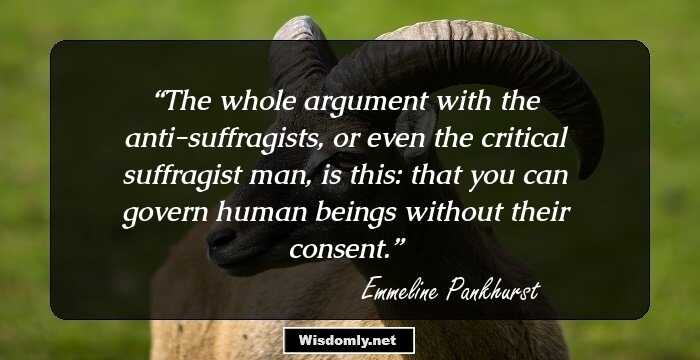
The whole argument with the anti-suffragists, or even the critical suffragist man, is this: that you can govern human beings without their consent.
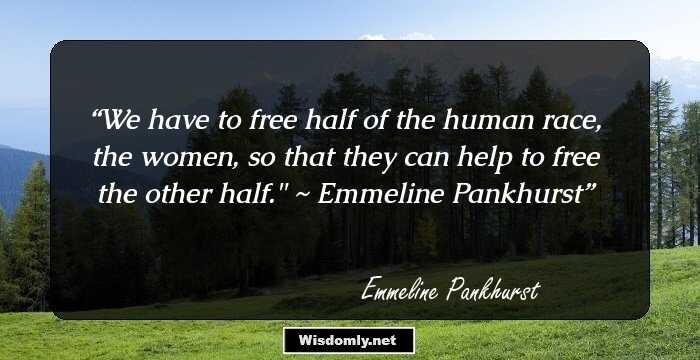
We have to free half of the human race, the women, so that they can help to free the other half." ~ Emmeline Pankhurst
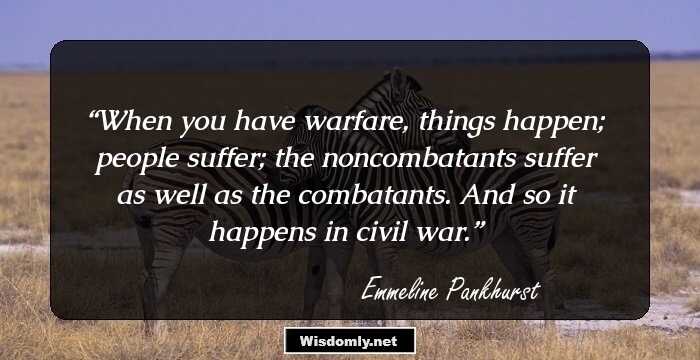
When you have warfare, things happen; people suffer; the noncombatants suffer as well as the combatants. And so it happens in civil war.
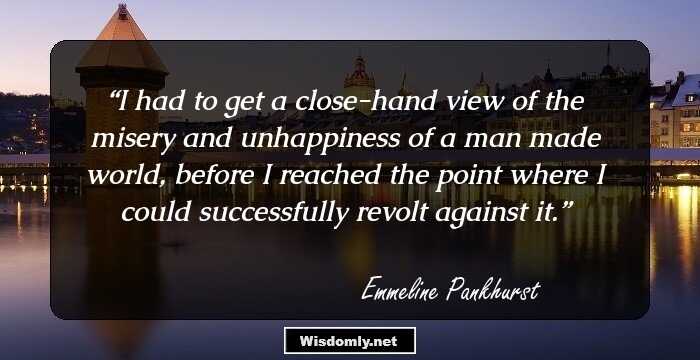
I had to get a close-hand view of the misery and unhappiness of a man made world, before I reached the point where I could successfully revolt against it.
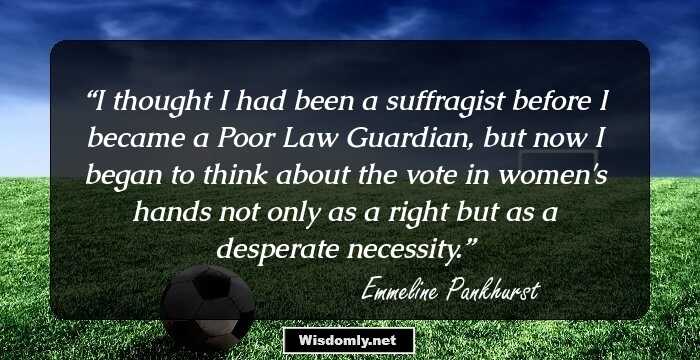
I thought I had been a suffragist before I became a Poor Law Guardian, but now I began to think about the vote in women's hands not only as a right but as a desperate necessity.
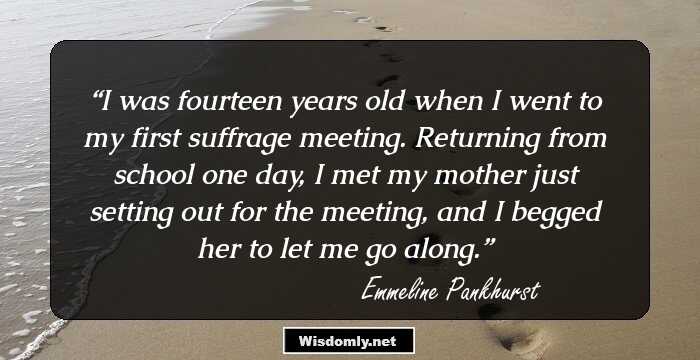
I was fourteen years old when I went to my first suffrage meeting. Returning from school one day, I met my mother just setting out for the meeting, and I begged her to let me go along.
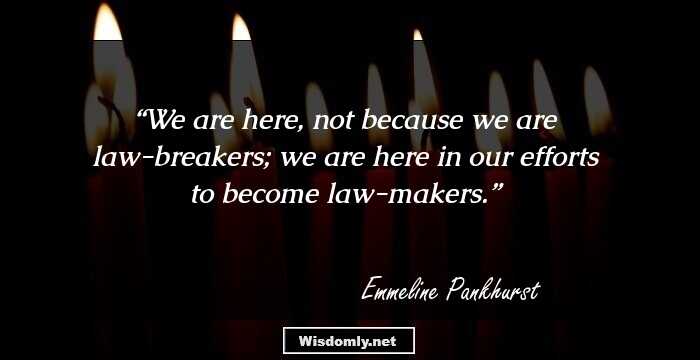
We are here, not because we are law-breakers; we are here in our efforts to become law-makers.
Manchester is a city which has witnessed a great many stirring episodes, especially of a political character. Generally speaking, its citizens have been liberal in their sentiments, defenders of free speech and liberty of opinion.
From infancy, I had been accustomed to hear pro and con discussions of slavery and the American Civil War. Although the British government finally decided not to recognise the Confederacy, public opinion in England was sharply divided on the questions both of slavery and of secession.
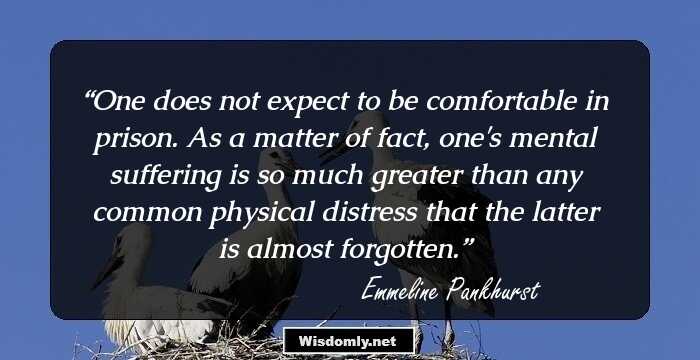
One does not expect to be comfortable in prison. As a matter of fact, one's mental suffering is so much greater than any common physical distress that the latter is almost forgotten.
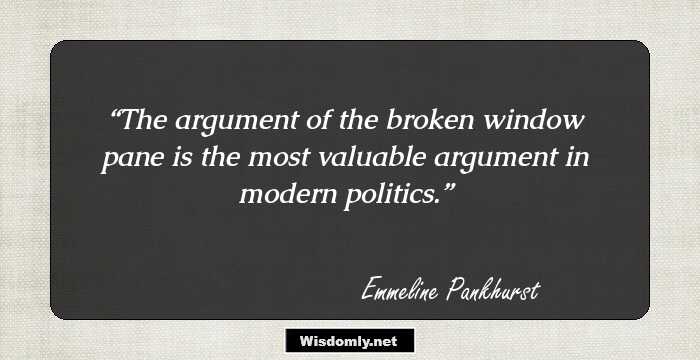
The argument of the broken window pane is the most valuable argument in modern politics.
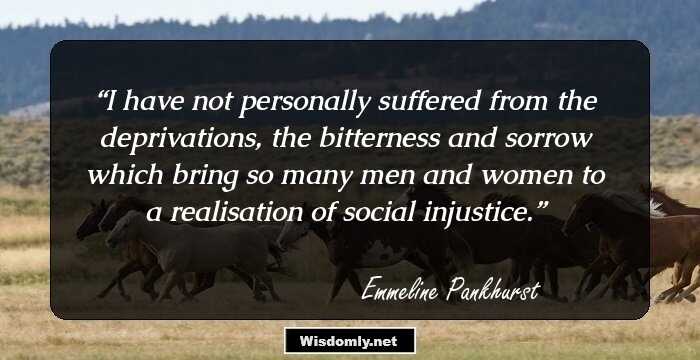
I have not personally suffered from the deprivations, the bitterness and sorrow which bring so many men and women to a realisation of social injustice.
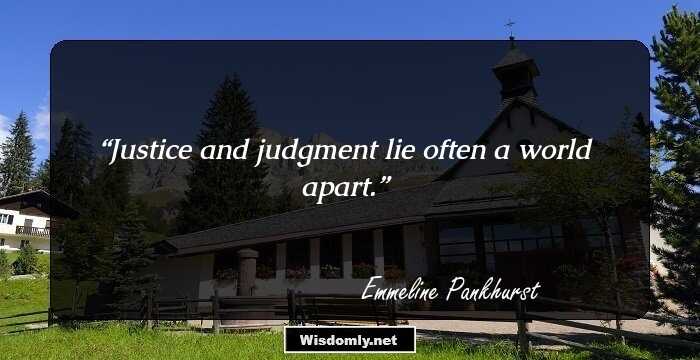
Justice and judgment lie often a world apart.
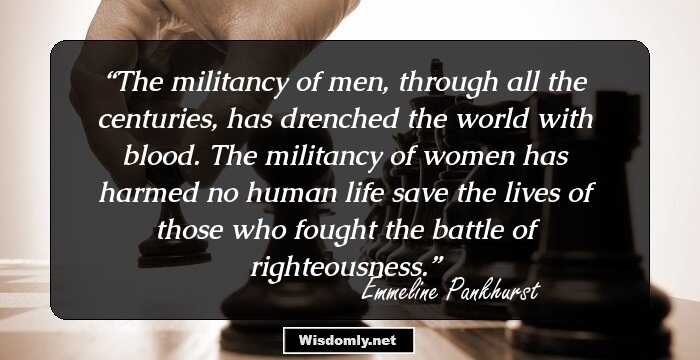
The militancy of men, through all the centuries, has drenched the world with blood. The militancy of women has harmed no human life save the lives of those who fought the battle of righteousness.

I have never advised the destruction of life, but of property, yes.
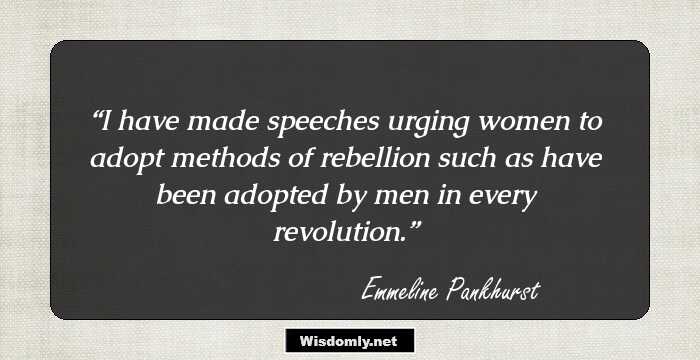
I have made speeches urging women to adopt methods of rebellion such as have been adopted by men in every revolution.
You must make women count as much as men; you must have an equal standard of morals; and the only way to enforce that is through giving women political power so that you can get that equal moral standard registered in the laws of the country. It is the only way.
Often I have heard the taunt that suffragists are women who have failed to find any normal outlet for their emotions, and are therefore soured and disappointed beings. This is probably not true of any suffragist, and it is most certainly not true of me. My home life and relations have been as nearly ideal as possible in this imperfect world.
If it is right for men to fight for their freedom, and God knows what the human race would be like today if men had not, since time began, fought for their freedom, then it is right for women to fight for their freedom and the freedom of the children they bear.

Window-breaking, when Englishmen do it, is regarded as honest expression of political opinion. Window-breaking, when Englishwomen do it, is treated as a crime.

Trust in God - she will provide.
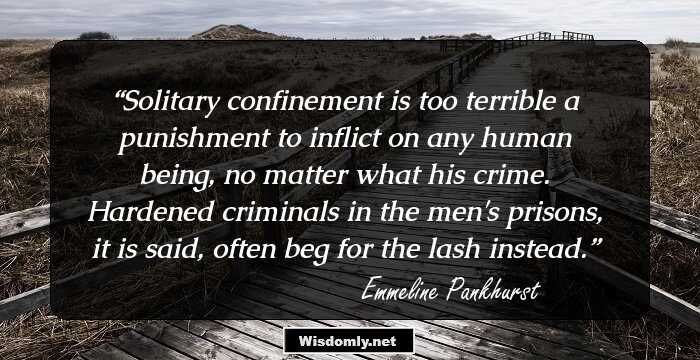
Solitary confinement is too terrible a punishment to inflict on any human being, no matter what his crime. Hardened criminals in the men's prisons, it is said, often beg for the lash instead.
Men make the moral code and they expect women to accept it. They have decided that it is entirely right and proper for men to fight for their liberties and their rights, but that it is not right and proper for women to fight for theirs.
My childhood was protected by love and a comfortable home. Yet, while still a very young child, I began instinctively to feel that there was something lacking, even in my own home, some false conception of family relations, some incomplete ideal.
Not by the forces of civil war can you govern the very weakest woman. You can kill that woman, but she escapes you then; you cannot govern her. No power on earth can govern a human being, however feeble, who withholds his or her consent.
Every principle of liberty enunciated in any civilized country on earth, with very few exceptions, was intended entirely for men, and when women tried to force the putting into practice of these principles, for women, then they discovered they had come into a very, very unpleasant situation indeed.
Those men and women are fortunate who are born at a time when a great struggle for human freedom is in progress. It is an added good fortune to have parents who take a personal part in the great movements of their time. I am glad and thankful that this was my case.
The English prison system is altogether mediaeval and outworn. In some of its details, the system has improved since they began to send the Suffragettes to Holloway. I may say that we, by our public denunciation of the system, have forced these slight improvements.










